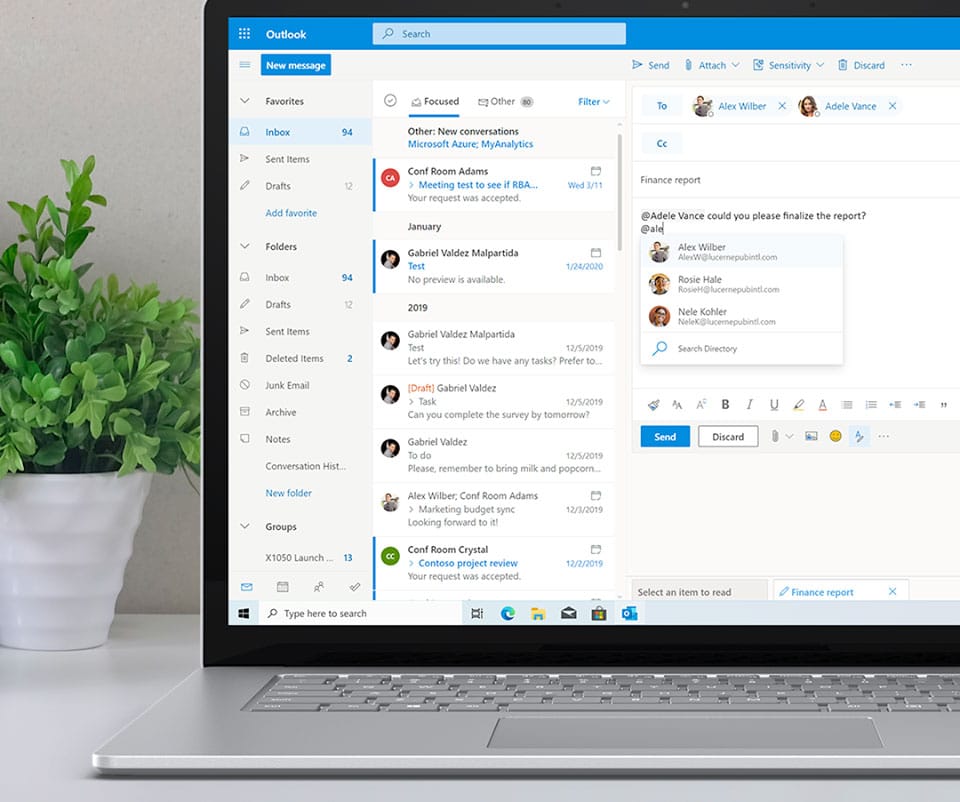8 Tech Skills Business Owners Need

Sure, you’re an expert in your field and you have the business acumen to back up your next great venture. But in today’s digital age, entrepreneurs also need to be tech-savvy. You may be planning on hiring or have already found experienced software development providers or chief technology officer (CTO) to take care of all things digital. Still, that doesn’t mean you can just wash your hands of tech and call it a day.
A successful business owner can’t exclusively rely on someone else’s tech skills to launch a startup and run a business. There are many areas of entrepreneurship that require a basic knowledge of programs, applications, software, and more. By learning these skills, you’ll be a better manager, communicator, marketer, and worker. These important tools and competencies will set you and your business up for success.
- Microsoft Office.
Let’s start with the basics: Microsoft Office, including Word, PowerPoint, and Excel, is an essential suite that should be in any professional’s repertoire. Of course, you’ll need to know more than just how to type. For instance, Excel will help you collate, organize, and update your data.There are many helpful features, and even a rudimentary knowledge of creating and using algorithms will allow you to automate the process of tabulating and categorizing figures, including sales.
- Basic coding
“But I already have a programmer,” you may be thinking. Still, a rudimentary knowledge of basic coding, even just the scripting language HTML, will allow you to be more self-sufficient. After all, you don’t want to have to call up your web developer every time you need to format an element of your website or change the font in the text. HTML and CSS are easy to learn and use for this purpose.If you want to expand your coding knowledge even further, consider taking a course through Codecademy or similar organization. There are plenty of great, short courses online, and many of them are free. While you may still want to outsource development to a dedicated professional, knowing programming languages will come in handy when you need to address minor bugs and other issues quickly.
- Google Analytics
As a business owner, it’s important to be able to assess how your efforts are paying off. Learning how to use Google Analytics will allow you to monitor your website traffic, including your click-through rate (CTR), unique visitors, time spent on different pages, and so on. This is an essential part of developing and honing your marketing strategy — you’ll be able to see what’s doing well and what requires more attention or a change of direction. - SEO
Search engine optimization (SEO) doesn’t just mean packing your website with keywords. In order to improve your search engine rankings, you’ll need to become familiar with the ins and outs of the strategy. You may want to hire an SEO expert to help you as you develop your website, but understanding the basics will allow you to consider what kind of professional you need and evaluate the results of their efforts. - WordPress
If you don’t have the budget for a web designer, WordPress is a great platform for creating professional-looking, aesthetically-pleasing websites on your own. You don’t need to be a programmer to use it. It’s easy to learn and use and includes numerous plugins and templates to make it even more user-friendly.Even if you do hire someone to create your website, chances are that person won’t be a full-time staff member, and being able to navigate WordPress will enable you to make small changes yourself. You can also see some analytics through the platform to assess performance.
- Cloud software
Every business, no matter the size, generates a huge amount of data these days, and you’ll need a place to store it. Cloud storage is usually the best solution. Most Cloud-based tools, such as Dropbox, are not terribly difficult to learn, and the payoff of having them at your disposal is huge. Not only will you have a place to securely store files and other data, but you’ll also be able to share information and collaborate more efficiently with your colleagues. - Bookkeeping software
You’re probably not a CPA, so managing your expenses and financial information can be confusing. Bookkeeping software is often the answer to your money matters. Not only can you track your expenses and earnings through many of these tools, but you can also manage payroll and billing. FreshBooks and QuickBooks are just a few examples of easy-to-use bookkeeping software. - Social media
As you’re probably aware, having a Facebook and Instagram doesn’t make you a social media expert. These and other social networking tools, including LinkedIn and Twitter, are important tools for marketing and growing your business.Learning how to use and manage these platforms from a business angle is valuable, especially as you’re starting out and may not have the budget for a social media manager. You should also learn how to effectively advertise across these different platforms.
You don’t have to be a tech genius to learn these skills and be able to competently use these programs, and they’ll make your life a lot easier as a business owner. From better organization to improved marketing campaigns, there are many reasons to have them in your arsenal — and your business will be more successful as a result.
Have you read?
World’s Best (And Worst) Countries For Older People To Live In.
Countries With The Largest Household Size.
The World’s Best Non-Native English Speaking Countries.
Best Countries For Business In Europe For Non-European Investors.
Bring the best of the CEOWORLD magazine's global journalism to audiences in the United States and around the world. - Add CEOWORLD magazine to your Google News feed.
Follow CEOWORLD magazine headlines on: Google News, LinkedIn, Twitter, and Facebook.
Copyright 2025 The CEOWORLD magazine. All rights reserved. This material (and any extract from it) must not be copied, redistributed or placed on any website, without CEOWORLD magazine' prior written consent. For media queries, please contact: info@ceoworld.biz













